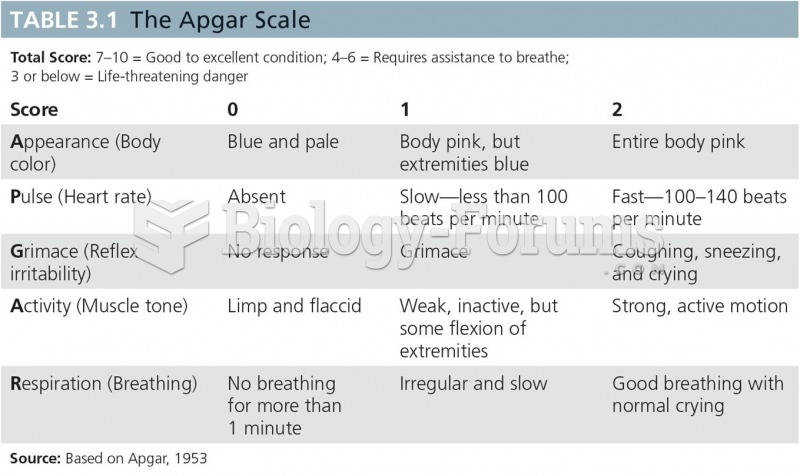|
|
|
It is believed that humans initially contracted crabs from gorillas about 3 million years ago from either sleeping in gorilla nests or eating the apes.
This year, an estimated 1.4 million Americans will have a new or recurrent heart attack.
Medication errors are more common among seriously ill patients than with those with minor conditions.
Anesthesia awareness is a potentially disturbing adverse effect wherein patients who have been paralyzed with muscle relaxants may awaken. They may be aware of their surroundings but unable to communicate or move. Neurologic monitoring equipment that helps to more closely check the patient's anesthesia stages is now available to avoid the occurrence of anesthesia awareness.
Multiple experimental evidences have confirmed that at the molecular level, cancer is caused by lesions in cellular DNA.







